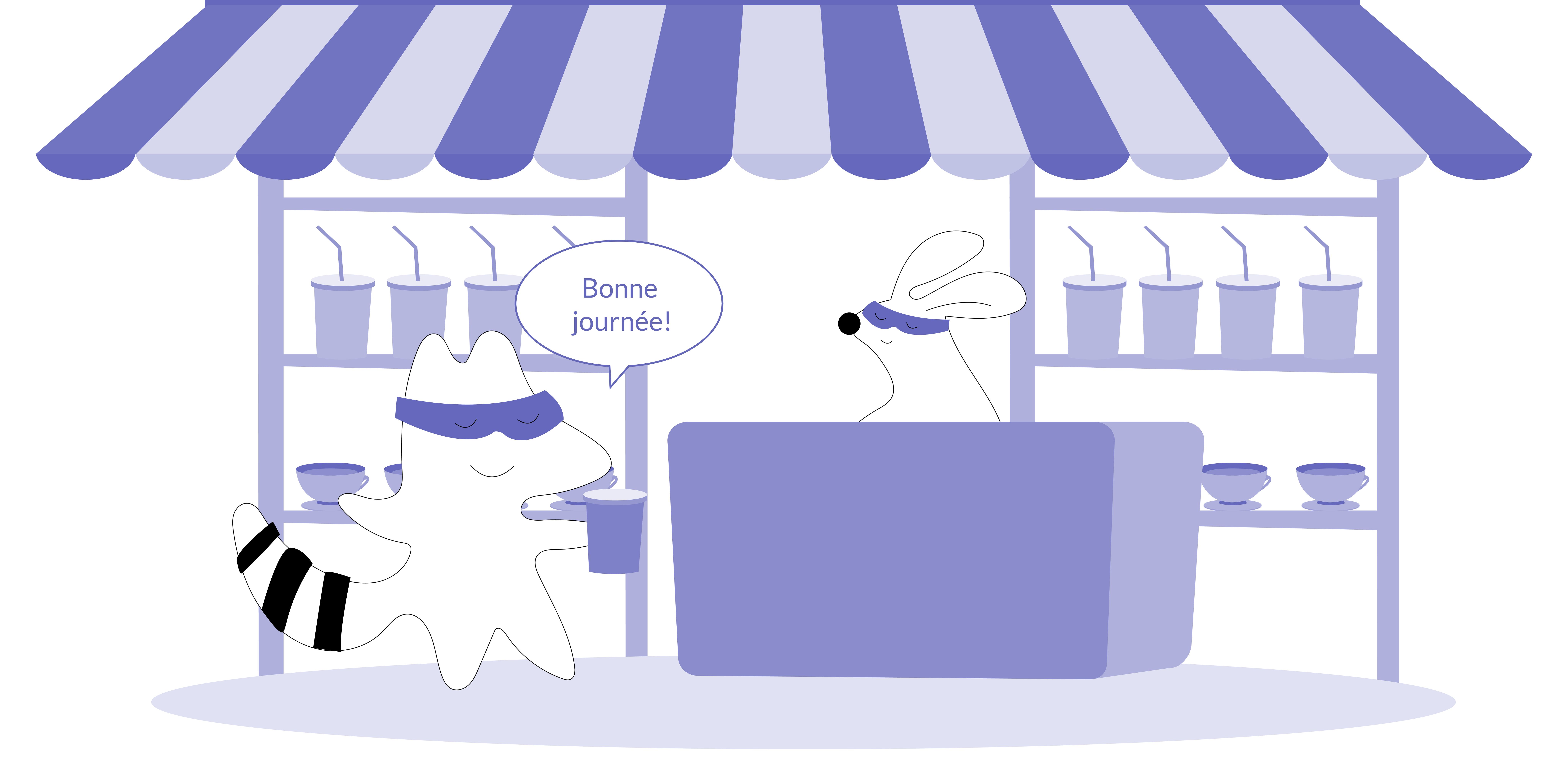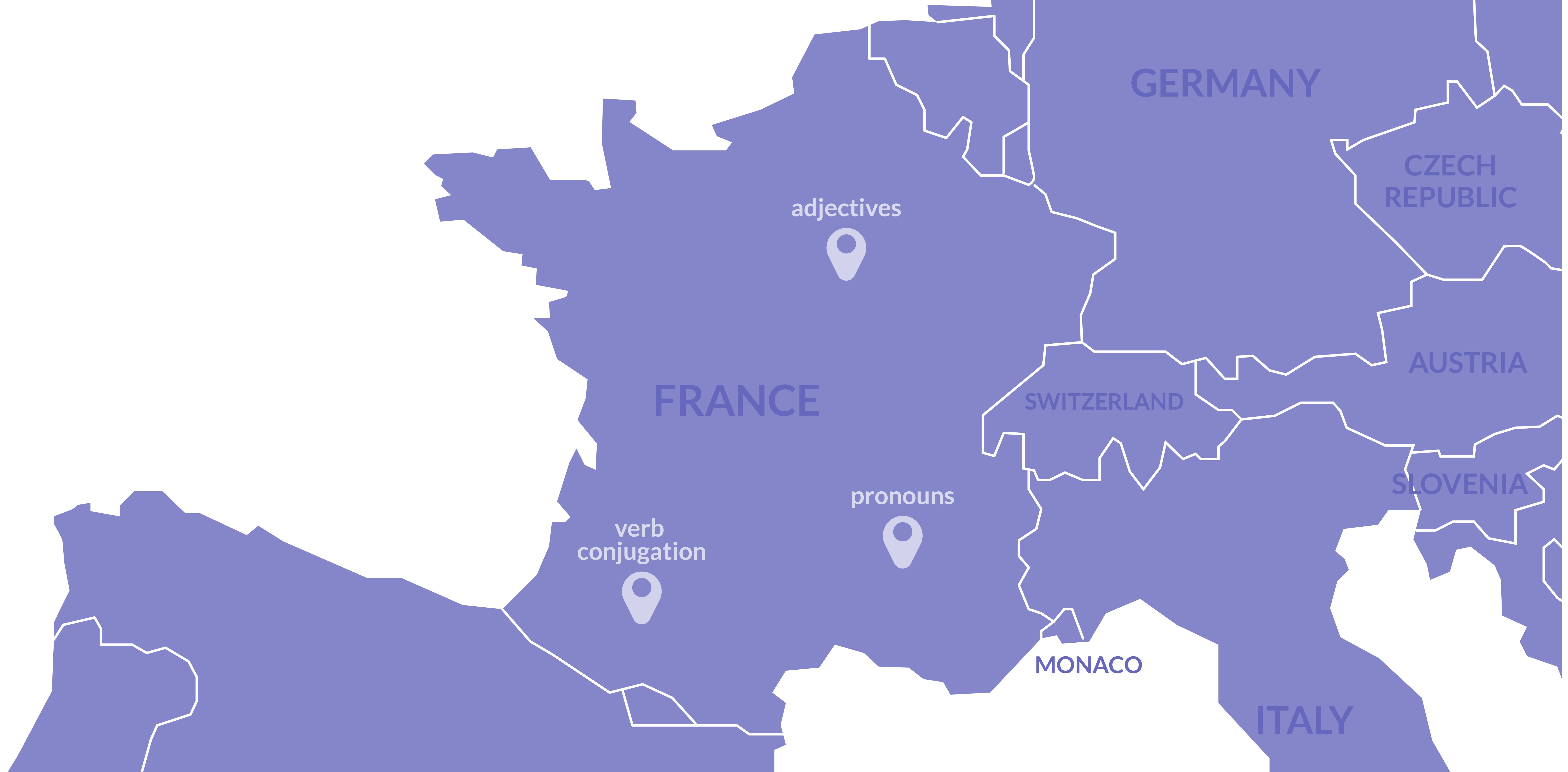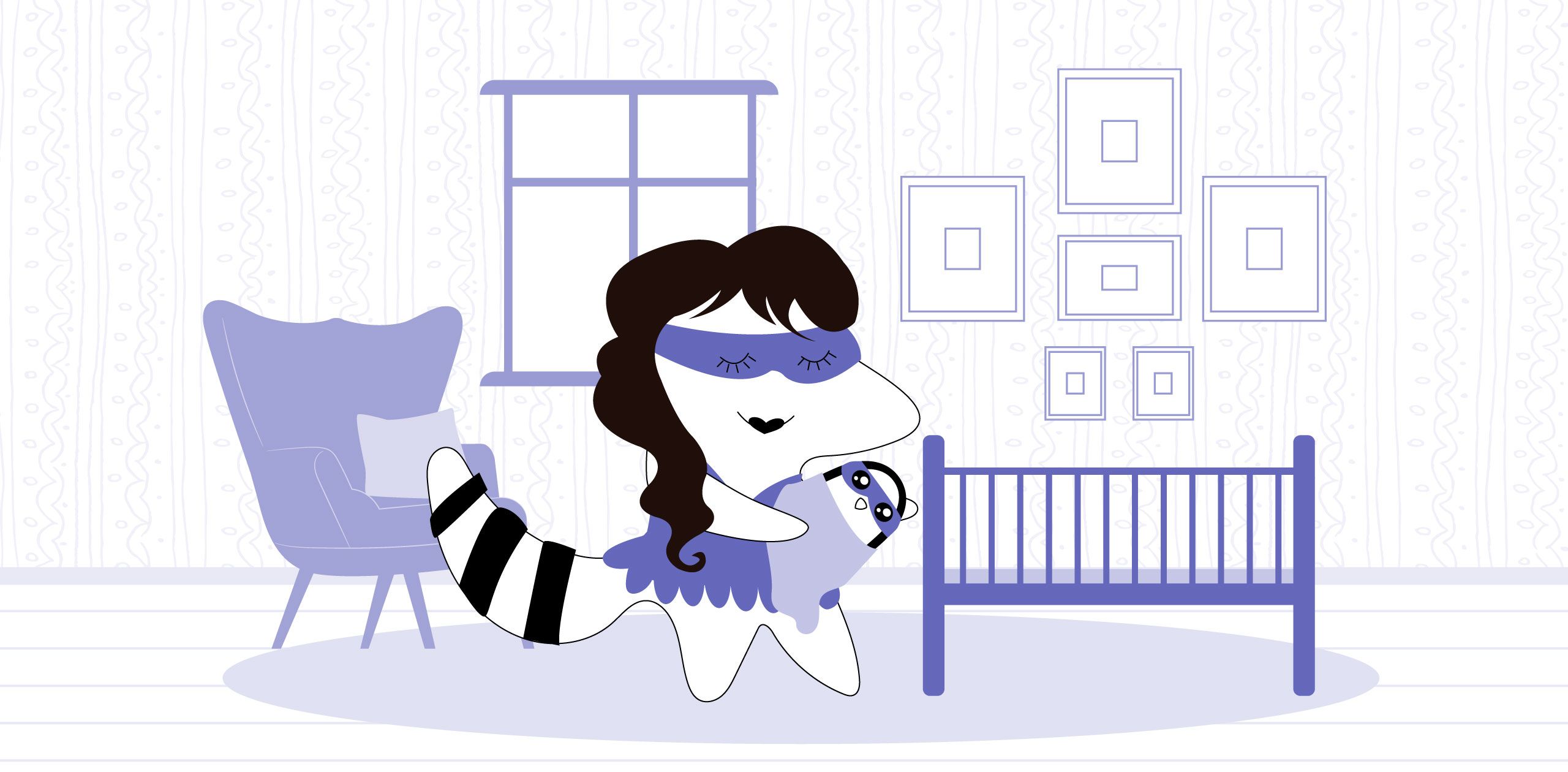
Bringing up your child in a French-speaking environment has many benefits. In addition to learning another language, your child will also be immersed in a culture that values politeness, order, and family togetherness.
However, to do it correctly, you don't only need to learn the necessary vocabulary but also be aware of some tips French parents use with their children. So, to get you started, we've prepared this short guide for parenting in French. Read on to learn about baby talk in French, all the necessary childcare words, as well as some helpful parenting techniques.
Learn French with Langster
French for “Baby” – Parenting Vocabulary
If you're looking to raise your child in a French-speaking environment, it's important to know the necessary vocabulary. This will allow you to not only communicate with other French parents freely, but also use French parenting sources a bit more fluently. Here is a list of French baby words and phrases to get you started:
French
English
la chambre de bébé
baby room, nursery
le biberon
milk bottle
allaiter
to nurse
le rot
burp
les couches
nappies, diapers
la tétine, la sucette
pacifier
la poussette
stroller
le landau
a pram, baby carriage
le porte-bébé
baby carrier
le lit de bébé
crib
la nourriture pour bébés
baby food
la poupée
doll
le berceau
cot
le siège auto pour bébés
baby car seat
le trotteur
walker
la bavette
bib
le talc pour bébés
baby powder
la pommade calmante
baby cream
le talc
talc
la crème pour les fesses
anti-rash ointment
le matelas à langer
changing mat
la garderie
daycare, childcare
la garde d’enfant, une nounou
nanny
l’aire de jeu
playground
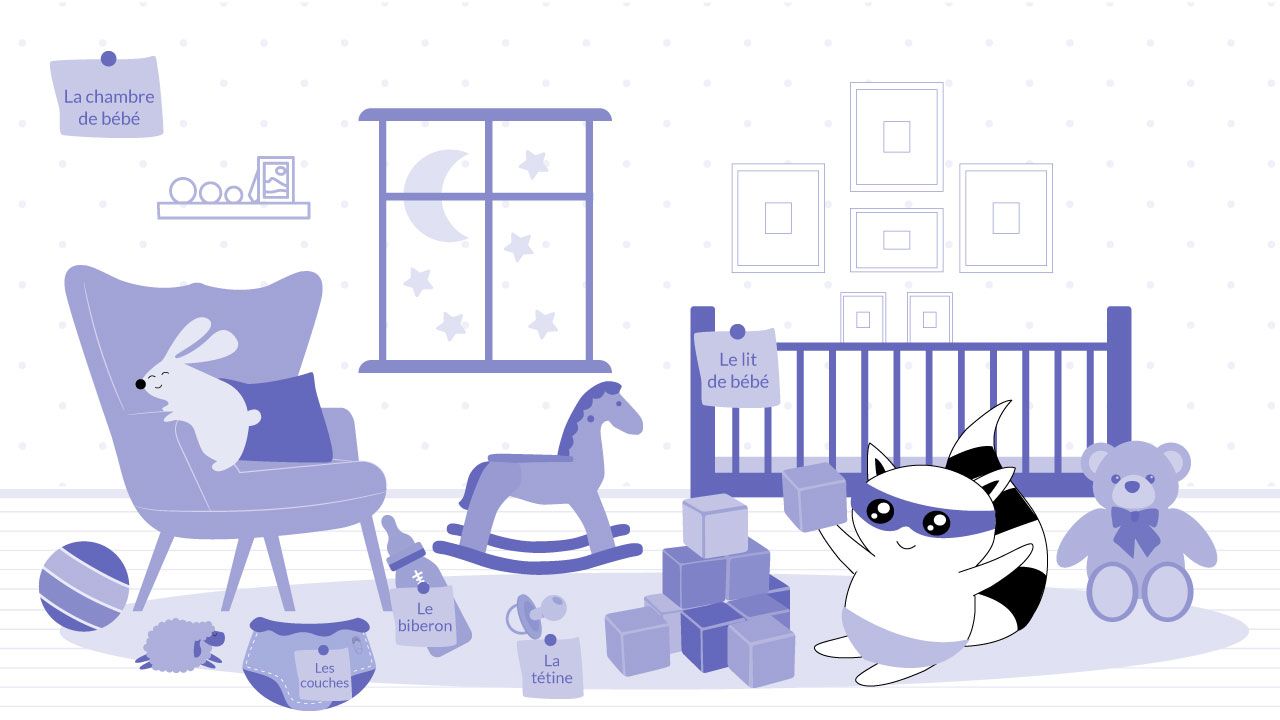
Baby Talk in French
Now, just like English speakers, French people have a whole set of vocabulary used with babies – baby talk. Most of these are words usually derived from regular French words and reduced to one syllable repeated twice to sound simpler and cuter. Of course, these are used mostly when the baby is too small to use actual, longer, and more complicated words.
French
English
maman
mother
papa
daddy
tata, tatie
auntie; short for “tante”
tonton
uncle; short for “oncle”
mémé, Mamie
grandma; short for “grand-mère” or “bonne maman”
pépé, Papi, Papy
grandpa; short for “grandpère,” “grandpapa,” or “bon papa”
le dodo
to sleep
au dodo!
go to bed!
fais dodo
go night-night
le petit dodo
nap time
le lolo
milk; baby talk for “le lait”
guili guili
tickle tickle
le nounours
teddy bear; baby talk for “un ours”
le doudou
blankie (or stuffed animal) that a child goes to sleep with
le joujou
toy
le pipi
pee
faire pipi
to go wee-wee
le caca, le popo
poo
faire caca
to go poo-poo
le prout
fart; derived from “une flatulence” (formal) or “un pet” (informal)
le zizi, la zézette
weenie, private parts
le bobo
a boo-boo; used for a cut or bruise
le minou
kitty
le toutou
doggy
le dada
horsey
And, most importantly,
French
English
areuh
sound a French baby makes, similar to “googoo gaga”
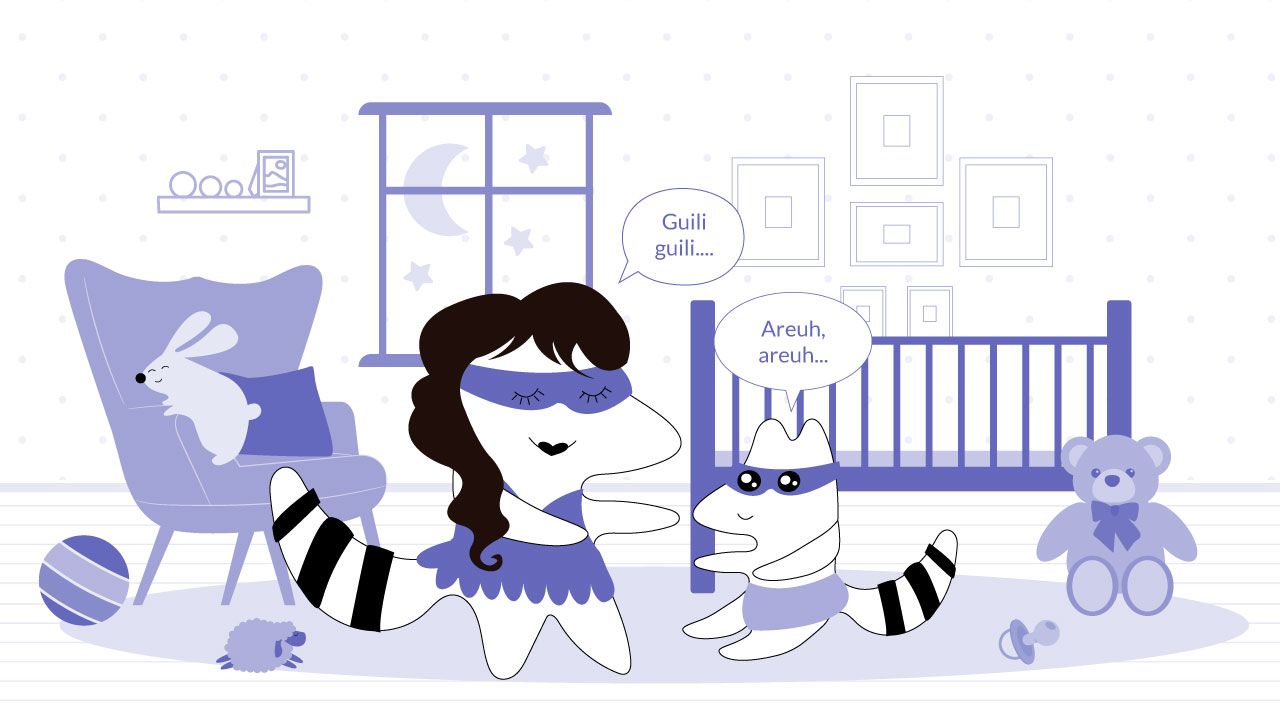
French for Kids: How to Bring Up a Bilingual Child
But, teaching your child the French baby talk and using French parenting vocabulary yourself might not be enough. Of course, if the baby is surrounded by French-speaking children, this is the best type of immersion – but not everyone has that chance. Fortunately, there are many methods for learning French at a young age.
If you're raising a child in a bilingual home, here are 4 simple tips that should help you teach them some basic French:
- Play French songs, nursery rhymes, or French audiobooks; read French books together; or watch cartoons in French together. You can also opt for bilingual resources with English translation.
- Encourage the use of French by providing bilingual toys, labeling objects around the house in both languages, and pointing out things in French when you're out and about.
- Start with teaching simple words and phrases like “bonjour” (hello), “au revoir” (goodbye), “s'il vous plaît” (please), and “merci beaucoup” (thank you very much).
- Consider hiring a French-speaking nanny or enrolling your kid in a French-speaking kindergarten when they’re older.
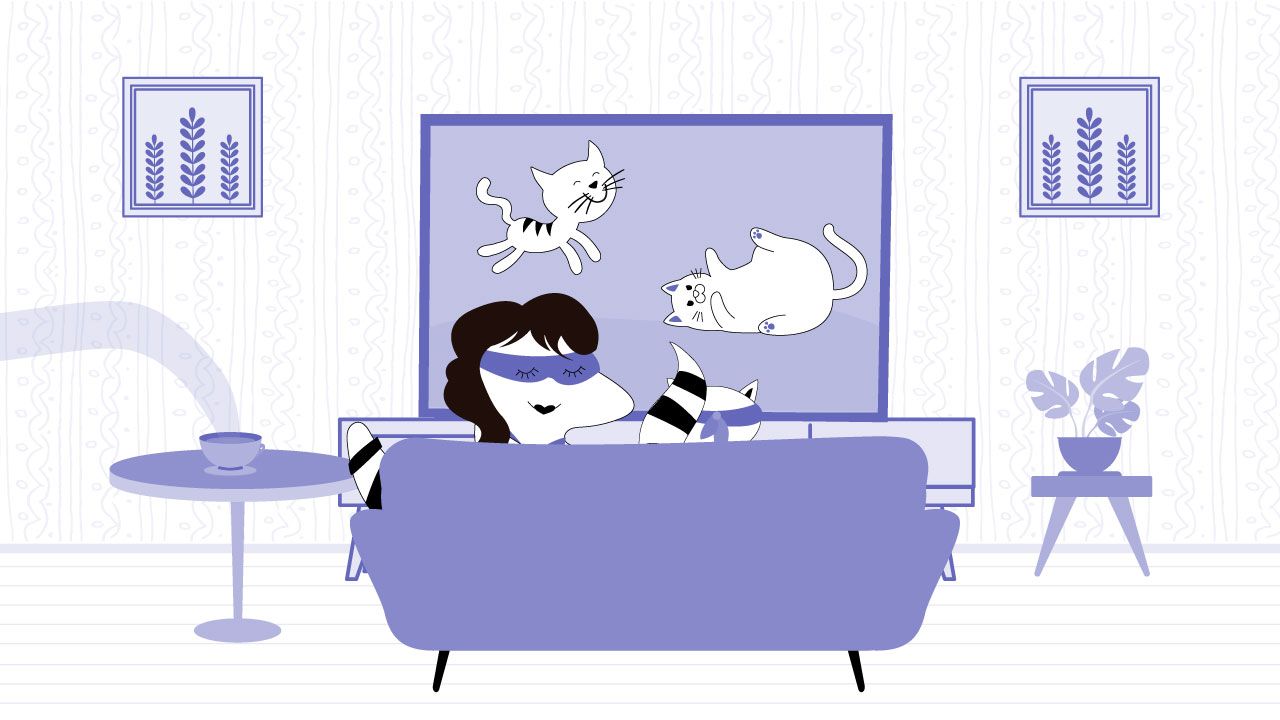
5 French Parenting Techniques
Schedule Some Family Time
It’s important to spend some quality time with your kids, especially when they’re young. But, it can be hard to find the chance if both parents work full time. One solution is to schedule family time into the week, so that everyone knows when they can relax and enjoy each other’s company.
For example, have a family dinner every day during the week, where the whole family puts the screens away and focuses on one another. Or, per French tradition, invite your extended family over for a Sunday lunch.
Serve Your Child Some Real Food
The French tend to serve their children smaller portions of the same food that they’re eating. So, if the adults are having roast chicken, veggies, and potatoes, the kids will eat those same things – just in smaller quantities.
This approach has several benefits. For one, it helps kids learn to appreciate different types of foods and tastes. And, secondly, it prevents them from developing bad eating habits, like always needing sweets or processed snacks.
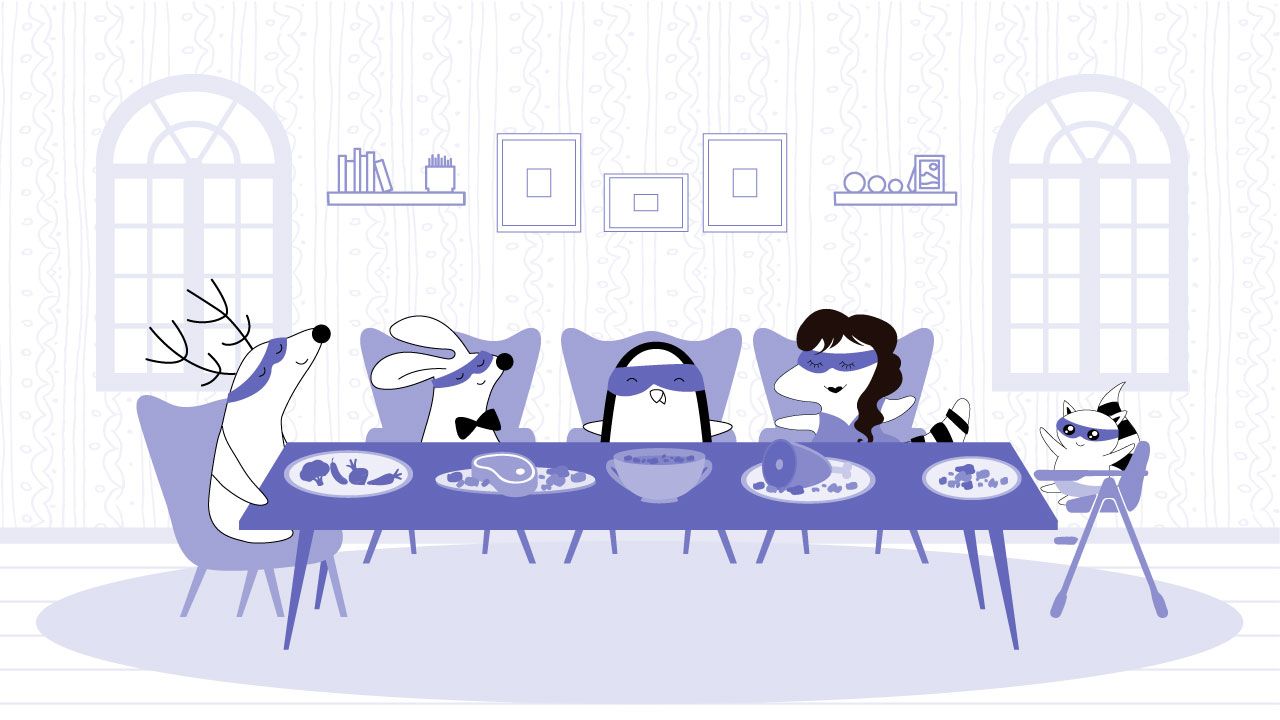
Allow Your Kid to do Difficult Things by Themselves
In France, it’s common for kids to walk or ride their bikes to school by themselves – even when they’re very young. This might sound dangerous to parents who are used to driving their kids everywhere. But, in France, it’s seen as an important part of growing up.
French parents teach their children to be independent from a young age. For example, kids are encouraged to dress themselves, brush their own teeth, and tidy up their toys.
Allowing your kids to do things by themselves – even when it’s hard – helps them develop a sense of independence and confidence. So, don’t be afraid to let your kid walk to the park alone or ride their bike to a friend’s house – of course, after a certain age.
Teach Them Polite Manners
In France, good manners are very important. That’s why parents make sure to teach their kids how to behave in polite company.
For example, French children are taught to say “hello” and “goodbye” when they see someone, as well as say “please” and “thank you.” Of course, every family is different. But in general, French parents expect their kids to mind their manners and behave well in public.
Let Them Experience Reasonable Hurts and Frustration
It’s normal for kids to experience some frustration and disappointment in life. And, in France, parents don’t try to protect their children from these negative emotions. Instead, they teach their kids how to deal with them in a healthy way.
For example, if a child doesn’t get the toy they wanted, the parent might say something like, “I’m sorry you’re feeling disappointed. Let’s see if we can find something else that you like.”
In other words, French parents allow their kids to experience negative emotions – but they also help them understand and cope with those emotions in a positive way.
Bottom Line
Parenting in a foreign language can be a daunting task, but with a little effort, you can raise bilingual children without too much trouble. Start by pointing out things in French when you're out and about. Then, start teaching simple words and phrases that will help your child get around while they are still learning the language.
And, of course, consider implementing some French parenting techniques in your life if you want your child to be brought up as a real French person. Remember, though, that every family is different – find what works best for you, and go from there.







